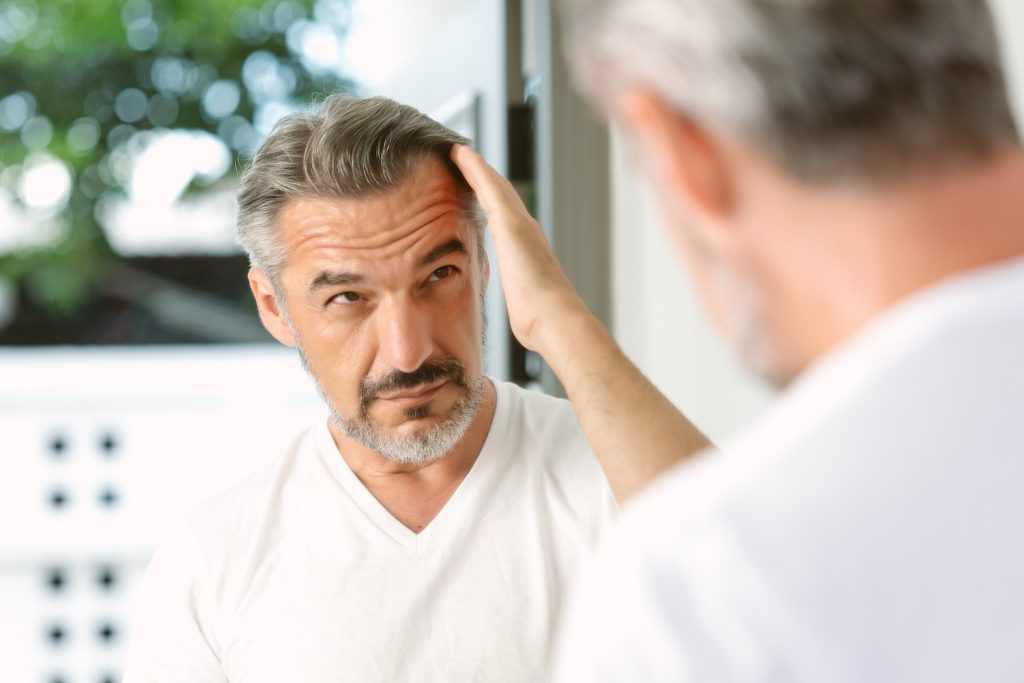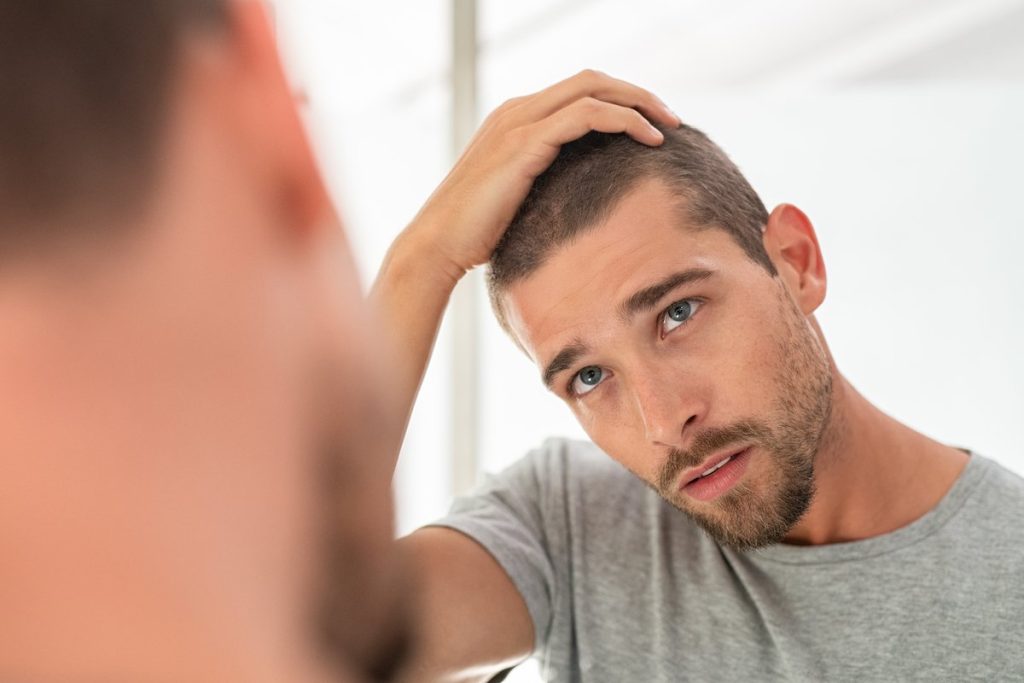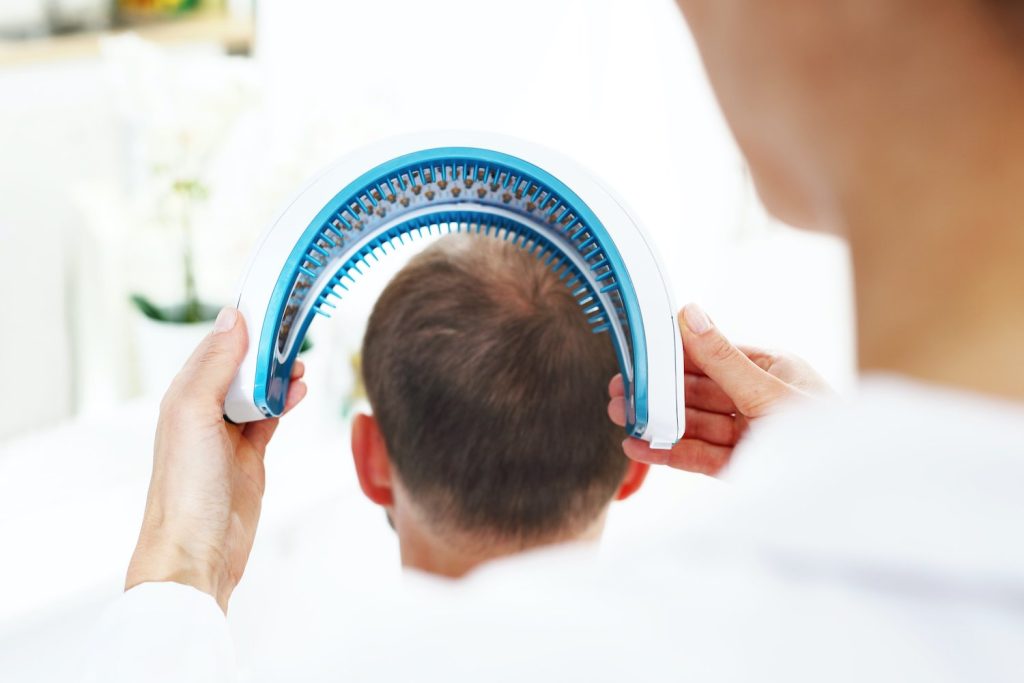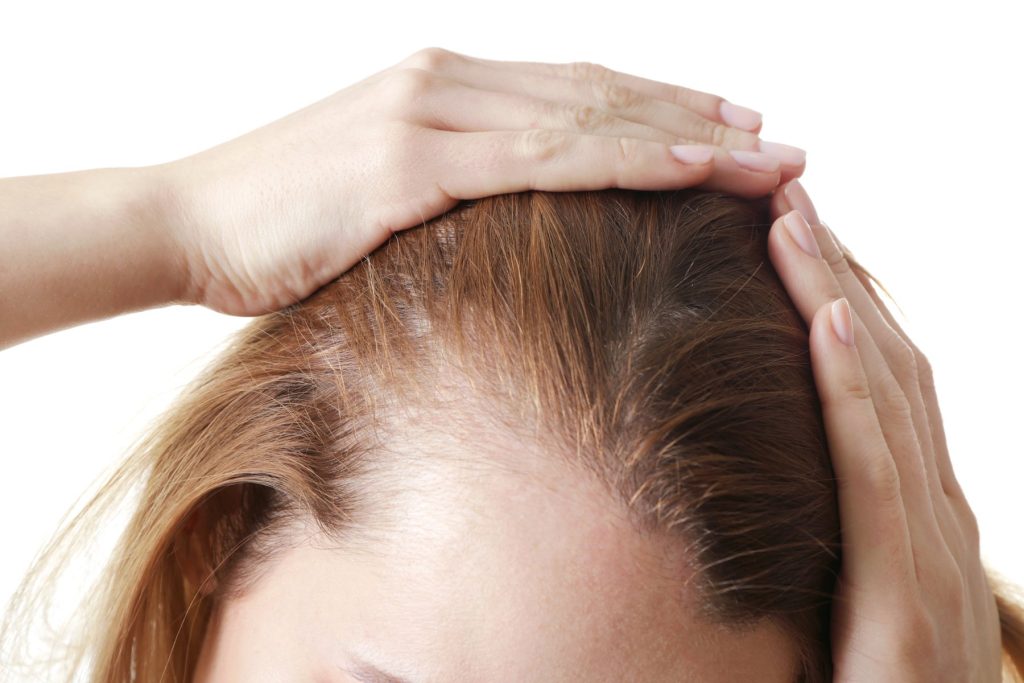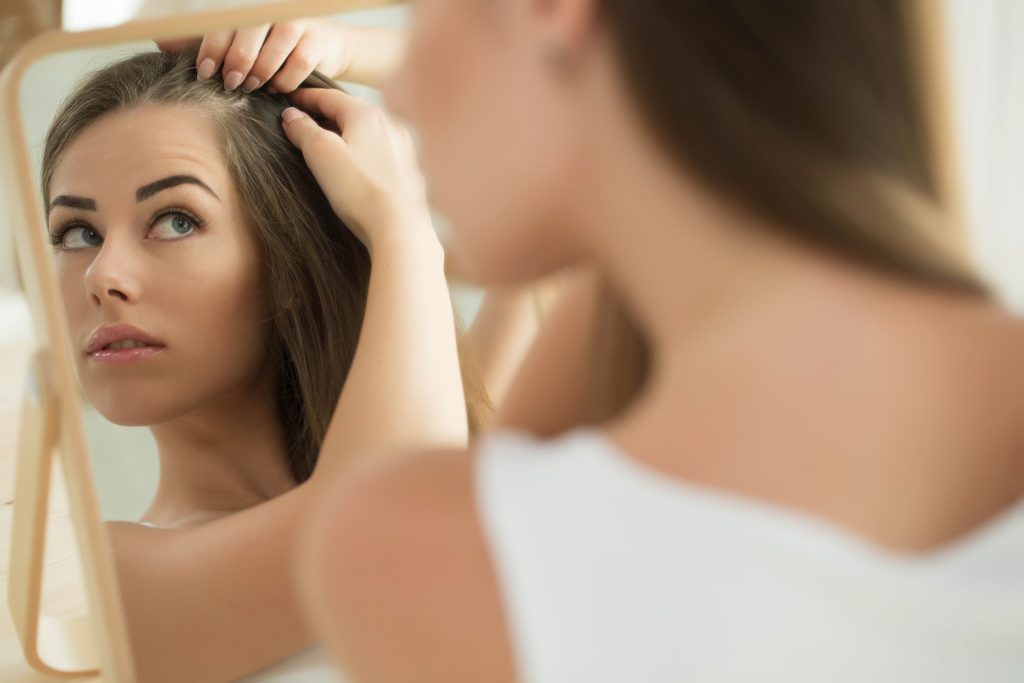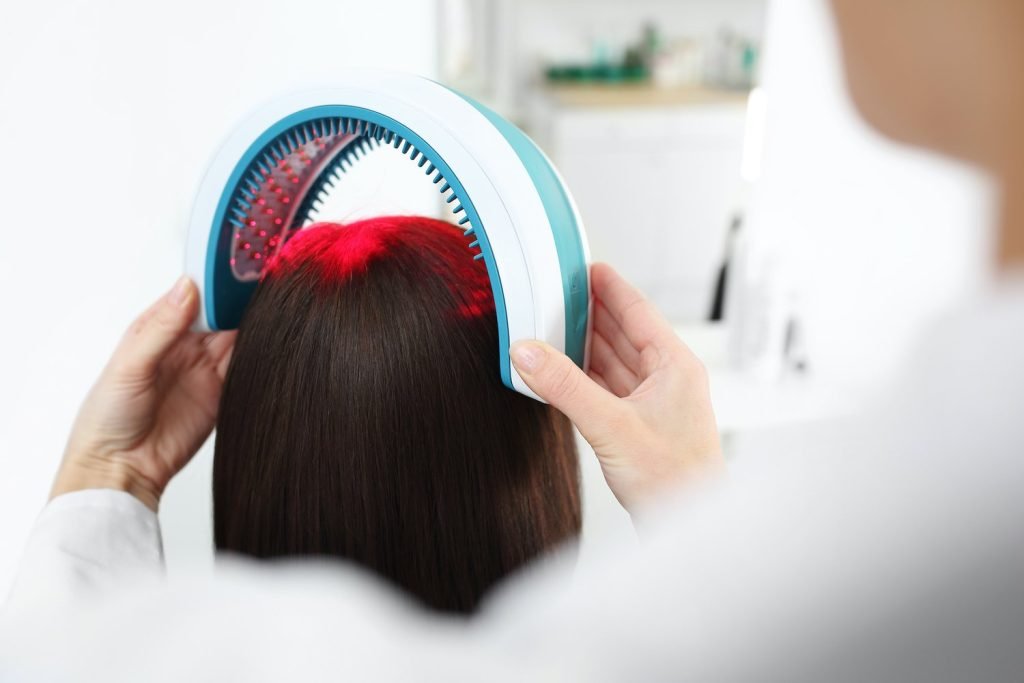- Hairline Clinic - Hair Loss Treatment in Akron and Cleveland Ohio - Schedule FREE Consultation
- 330.633.5225
- CONTACT US
Five Ways for Men to Prevent Hair Loss
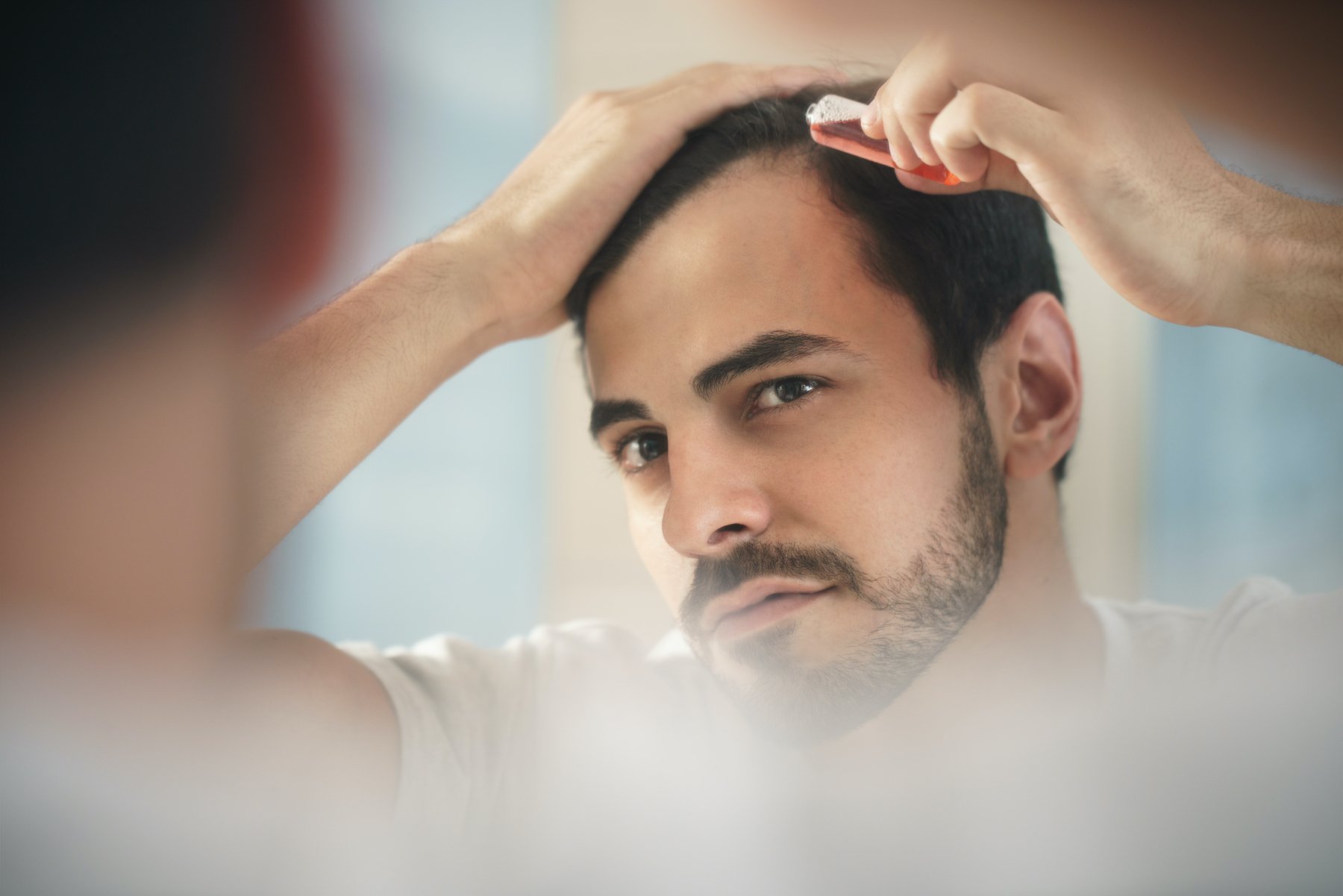
It’s hard to watch television for any length of time without seeing advertising for hair loss solutions. By their nature, they promote a product or treatment therapy that can halt hair loss, reverse it, or replace the hair that is otherwise gone for good.
Which is not to say those solutions aren’t good ideas. It’s just that there are several ways in which a man – women as well – can stop the death of hair follicles and instead grow thicker, healthier hair. With some prevention in mind, we can avoid hair loss treatments for women and men. We break those down into the following categories:
#1 Nutrition and supplements
What should be no surprise is that what is good for your heart, your skin, and overall weight management is also good for your hair. The Mediterranean diet – which emphasizes vegetables, fruits, nuts, seeds, legumes, fish and other seafood, and extra virgin olive oil (and far less red meat than the typical American diet) – provides the proteins and plant-based nutrients that assist with healthy hair growth.
This is more than just someone’s intuition. A study published in the Archives of Dermatological Research(“Mediterranean diet: fresh herbs and fresh vegetables decrease the risk of Androgenetic Alopecia in males,” Fortes, Mastroeni, et al, November 27 2017) looked at 212 men (plus 108 in a control group) to find that high consumption of raw vegetables and fresh herbs, both typical in the Mediterranean countries’ diets, produced “protective effects” against this form of hair loss (androgenetic alopecia is the most common cause of male hair loss).
Additionally, hair is largely made up of keratin, a protein, which is found in both animal and vegetable forms. Keeping consistent with the Mediterranean diet, that means eating fish (e.g., salmon, herring, sardines, mackerel), nuts, beans, eggs, chicken, and turkey.
#2 Physical fitness/stress reduction
In simplest terms, healthy blood flow to every organ in the body is always beneficial. That includes the scalp (skin) and the hair follicles based there. The person who exercises will always have greater blood flow, which brings nutrients while removing wastes.
Another benefit of exercise is stress reduction, which can have a significant impact on hair health. Stress-induced hormones can actually disrupt the hair growth cycle, so exercise (of all types, but perhaps yoga being the first choice), sufficient sleep, keeping hydrated, and just finding respite from the worries of life can all contribute to healthier hair.
#3 Medications and other interventions
A full quarter century has passed since the hair restoration miracle of medications that truly halt and sometimes reverse hair loss. They are of course finasteride (Propecia and Proscar) and minoxidil (sold under Rogaine and dozens of other brand names). Each comes with some side effects, so be sure to consult with a dermatologist as a matter of caution (minoxidil is sold over the counter, but in the US, finasteride requires a prescription).
Other interventions are hair transplants, which of course occur after hair is lost. But treatment with platelet-rich plasma (PRP) can enrich growth factors in the blood that can stimulate growth phases for hair. This involves drawing the patient’s blood and running it through a centrifuge – which likely isn’t covered by medical insurance. Results can be seen in about four months.
#4 Address your vices
In a corollary with nutrition, what’s bad for the heart is bad for the hair. Smoking and alcohol take their toll by restricting blood vessels, slowing the flow of nutrient-rich blood to the follicles.
Also, over-shampooing (more than twice a week, although that varies by individuals and occupations that require headgear) as well as under-shampooing can hurt hair.
#5 What could it hurt?
Not quite folk medicine – as these treatments sometimes have small studies that support their hair loss prevention claims – these aren’t quite endorsed by the American Dermatologic Association (yet). But no harm is reported from use of any of the following to prevent hair loss:
- Essential oils (e.g., cedarwood oil mixed with lavender and rosemary), messaged into the scalp, have been studied and believed to be effective in about half the study participants. Lemongrass and peppermint, mixed with jojoba or grapeseed oils, which are not essential, might work as well.
- Onion juice might stimulate growth because of onion’s Sulphur content.
- Coconut oil might help prevent damage to hair from aggressive grooming (brushing) and sun exposure (UV rays).
- Olive oil is often used as a conditioner for people with dry hair, which makes it look thicker and more luxuriant.
In other words, there are a variety of means by which people can address hair thinning. As with all matters of style and grooming, the personal choices are what matter most.
We provide individualized hair loss treatments and solutions for men at our hair loss treatment clinics in Cleveland and Akron Ohio.
If you are a man suffering from hair loss conditions, we provide industry-leading, individualized hair loss treatments and hair loss solutions to men in Cleveland and Akron, OH. Schedule a FREE confidential consultation and evaluation at our Akron Hair Loss Treatment Clinic or our Cleveland Hair Loss Treatment Clinic by calling 330.633.5225 today!
Hair Loss Treatments
Men's Hair Loss Solutions
Women's Hair Loss Solutions
Men's Hair Loss Solutions
Ready for change? Call our hair loss experts at (330) 633-5225 to schedule a FREE appointment.
HairLine Hair Loss Treatment Clinic is an industry leader in providing individualized hair loss treatment programs to men and women in the Cleveland and Akron, Ohio region who are suffering from hair loss conditions.


